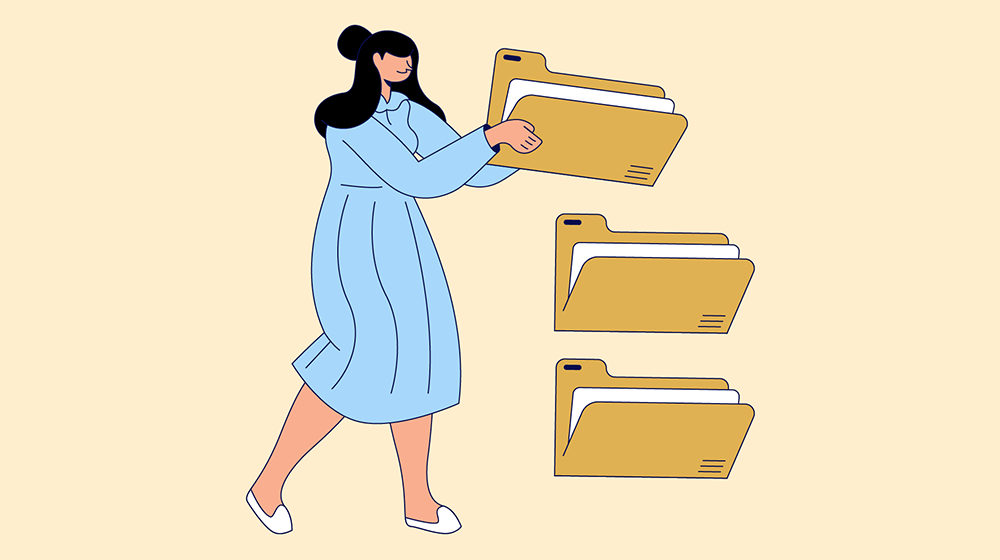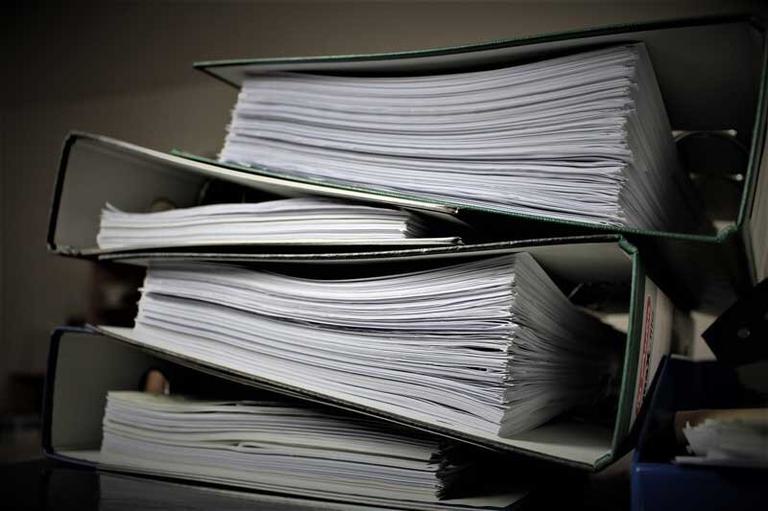Finance Forward Blog
What Documents Do You Need For Your Taxes?

The documents that you need to file your taxes can vary depending on your personal situation. Whether you’re doing your taxes alone or hiring the help of a professional, determining the forms and information you need will help to build momentum and get the job done as quickly as possible. To help an accountant get your taxes filed as early as possible, providing them with all of the forms and information they need right from the beginning is key.
Here, you’ll find everything you need so that you can get started on this essential task with confidence.
Your Personal/Partner's Information
Not all taxpayers need the same documents, but all taxpayers will need their:
- Social security number/tax ID number.
- Your spouse’s full name and social security number/tax ID number.
Your Dependent's Information
If you have dependents then you will need to include some relevant information before you can do your taxes. This includes:
- Childcare records, if applicable.
- Dates of birth and social security numbers/tax ID numbers.
- Income of any other adults in your home.
If you are a noncustodial parent, you may also need form 8332 that shows the custodial parent is releasing their right to claim a child to you.
Any Sources of Income
The various forms regarding your source of income may not apply every year. As previously stated, it will depend on changes and your situation. You may need:
- Employed - forms W-2.
- Unemployed - unemployment state tax refund 1099-G.
- Self-employed - this includes office in home information, record of estimated tax payments made, business use asset information, expense records, forms 1099, schedules K-1, income records to verify amounts not reported on 1099s.
Rental Income
If you receive a rental income from properties that you own you will need:
- Your records of any income and expenses related to your rental income.
- Rental asset information for depreciation.
- Social security/RRB income 1099-SSA, RRB-1099.
Savings and Investments or Dividends
Documentation for savings and investments or dividends includes:
- Interest/dividend income.
- Income from sales, stock, or other property.
- Expenses related to your investments.
- Dates of acquisition and records of your cost or other basis in property you sold.
- A record of estimated tax payments made.
- Any transactions in cryptocurrency.
Retirement
- Pension/IRA/Annuity income.
- Traditional IRA basis.
- Social security/RRB income.
Any Other Income and Losses
Other income and losses can cover a wide variety of situations, including:
- Gambling income.
- Jury Duty.
- Hobby income/expenses.
- Trusts.
- Prizes/Awards.
- Royalty income.
- Record of alimony paid.
If you’re unsure, the best course of action to take is to ask a reputable professional.
Types of Deductions
The types of deductions you make will, again, vary depending on your life situation. You probably won’t need everything listed here.
- Home Ownership - forms 1098, real estate and personal property tax records, receipts for home improvements for energy savings.
- Educational Expenses - forms 1098-T from educational institutions, receipts that itemize qualified educational expenses, records of fellowships or scholarships, form 1098-E if you paid student loan interest.
- K-12 Educator Expenses - classroom expense receipts for educators in grades K-12.
- Charitable Donations - money donated to schools, houses of worship, other organizations. Records of non-cash charitable donations, miles driven for medical purposes or charitable reasons.
- Childcare Expenses - any fees paid to a licensed family daycare or daycare center for an infant or preschooler, money to a babysitter.
- Medical Expenses - amount paid for healthcare insurance to hospitals, dentists, doctors, etc. Form 1095-A if you enrolled in an insurance plan through the Marketplace (Exchange).
- State & Local Taxes - amount paid other than wage withholding, or amount of state and local sales tax paid.
- Retirement/Other Savings - form 5498-SA and form 5498 to show HSA contributions and IRA contributions. All other 5498 forms applicable should also be used.
- Federally Declared Disaster - the location you lived, worked, or had property in. Records to support property losses, records of repair costs, insurance reimbursements/claims to be paid, FEMA assistance information. Check the FEMA site to see if your county has been declared a federal disaster area.

Advice for Those Filing Their Taxes for the First Time
Now you know what documents are required, this advice can help you when filing your taxes for the first time - or any time. We recommend taking your time and tackling it step by step. This way, you can avoid mistakes and take advantage of all of the money-saving opportunities available to you.
Keep a Close Eye on Your Income Year Round
It’s important to remember that if you meet or surpass a certain level of income during the year, you will need to update your tax return. Keeping an eye on the numbers will ensure you do not miss a trick. Be sure to add up income from all of your employers if you have more than one job, including any money you make on rental property and anything you sell, any investments or interest.
You need to keep your eye on the total income from every income stream, not just the amount from your ‘main’ job.
Save the Correct Paperwork Year Round
As well as keeping a close eye on your income, be sure to stay on top of the paperwork listed year-round. Making sure you deal with it as you receive it and filing it away in a safe, easy to remember space will be so much easier than a crazy scramble to find all of it when tax season rolls around.
You might think that you have ample time to get everything sorted, but it’ll be here sooner than you think. Keep all of your receipts and bills in a special folder or box, as well as anything regarding grants and fellowships. Keeping them organized is the most important thing, or you will feel snowed under when it’s time to tackle it all. You can even do this using an app like Evernote, for easy tracking and access.
As you need to keep paperwork for at least 3 years, using an app has the added advantage of keeping paperwork safe and handy at all times. Having a backup saved to the cloud will protect you should anything go wrong.
Remember, you can’t actually file your tax return until you’ve received a form W-2 or form 1099 from every place you have worked during the year. You will then use these documents to fill out form 1040, which is the IRS form for individual income taxes.
Become Well Versed in the Credits and Deductions That You Can Make
Get familiar with the credits and deductions that you are eligible to take, and ensure you know when and when not to take advantage of this. As your situation changes, you will need to ensure you’re still taking the correct credits and deductions.
Below are some of the credits and deductions that you may be entitled to:
- Saver’s Credit.
- Student Loan Interest.
- Charitable Deductions.
- Freelance Expenses.
Check the IRS website if you think that you may be eligible for further deductions and credits.
Stick to Your Deadlines
Sticking to the deadline laid out by the government is crucial. It’s the same every year, so there shouldn’t be any nasty surprises!
When tackling your taxes, ensure you plan at least a couple of sessions so that you can fully complete the return by the April deadline. Getting it finished in just one session when you are going it alone may not be possible.
Remember, you may need to locate any documents you have lost or forgotten, and may even decide to get help if things become too overwhelming. This is why you must never leave it until the last minute. Schedule in your sessions just like you would any other commitment or activity and you will get it done.
You can file an extension until around October time if you need to, but you will still need to pay your estimated taxes by the due date if you want to avoid penalties.
File Your Tax Return in a Way That Suits You
Now, there are more ways to file your taxes than ever before. You have several choices:
- Free File.
- IRS Online Forms.
- Tax Preparation Software.
- Work With An Accountant.
Remember, doing your taxes yourself may save you a few hundred dollars in the short term, but working with a knowledgeable accounting company could save you thousands - and even more over time.
Get Expert Help Filing Your Taxes
Let us help you navigate the complexities of tax season with ease! At J. Hall & Company, we provide personalized tax filing assistance and work hard to get you the best possible deductions. Schedule a free consultation today and let our tax experts guide you toward maximum returns and peace of mind.

